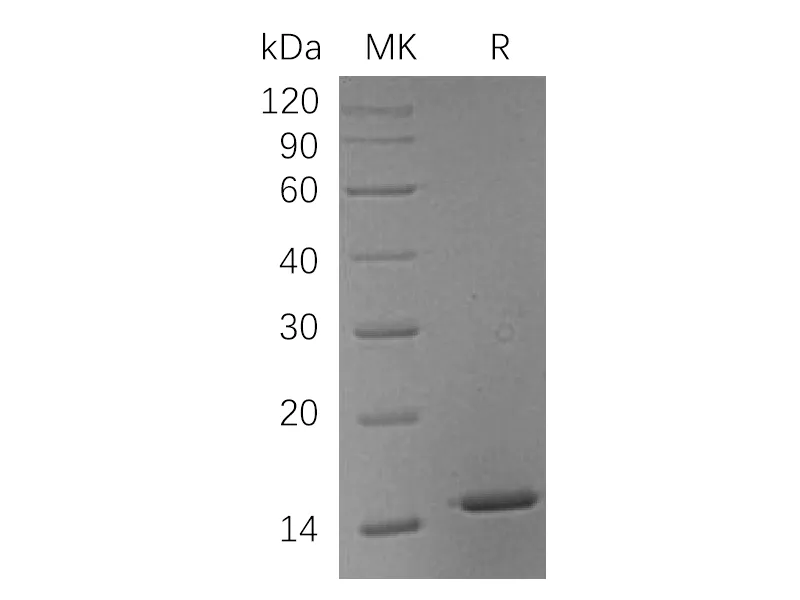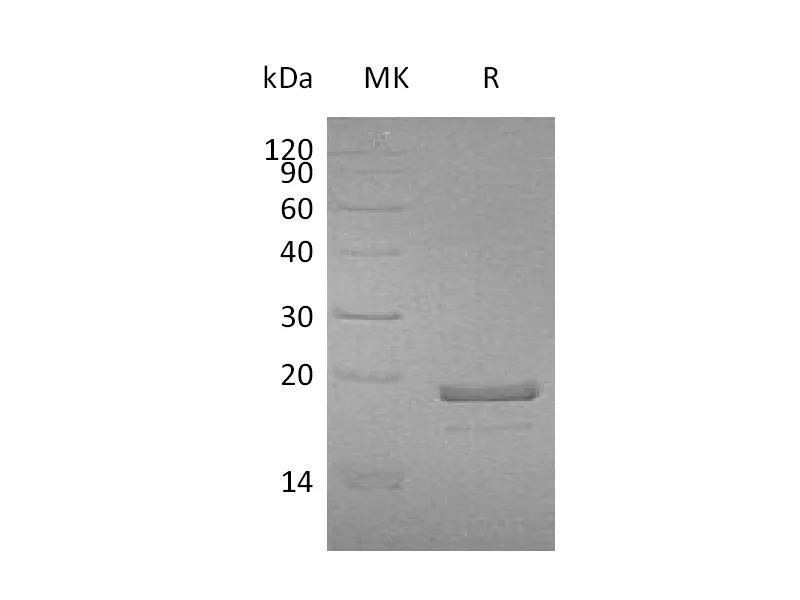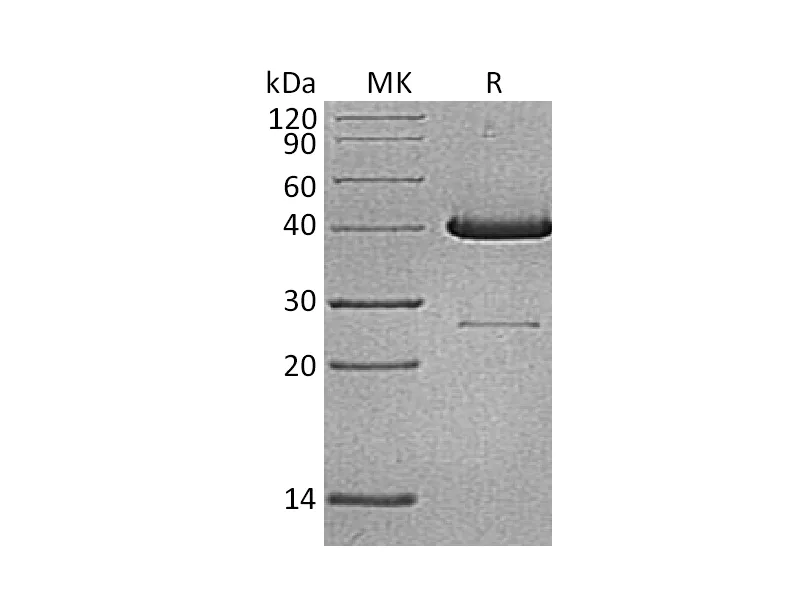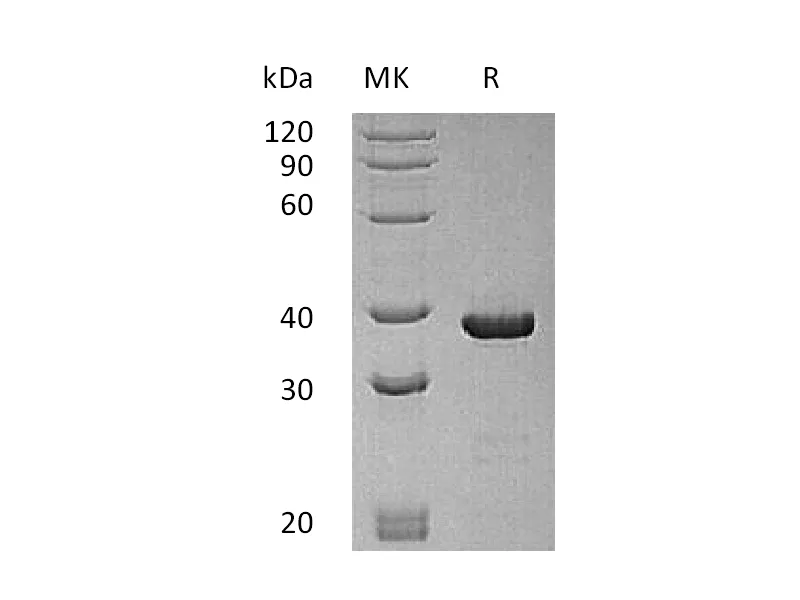| 产品名称 |
Recombinant Mouse RANK L (N-6His) |
| 英文名称 |
RANK L/TRANCE/TNFSF11/CD254/OPGL |
| 纯度 |
Greater than 95% as determined by reducing SDS-PAGE |
| 内毒素 |
<1 EU/µg as determined by LAL test. |
| 蛋白构建 |
Recombinant Mouse TNF-related Activation-induced Cytokine is produced by our Mammalian expression system and the target gene encoding Arg43-Asp287 is expressed with a 6His tag at the N-terminus. |
| Accession |
BAA97257.1 |
| 表达宿主 |
Human Cells |
| 种属 |
Mouse |
| 预测分子量 |
28.3 KDa |
| 制剂 |
Lyophilized from a 0.2 μm filtered solution of 20mM Tris-HCl,8% Trehalose,2% Mannitol,0.05% Tween80,pH 9.0. |
| 运输方式 |
The product is shipped at ambient temperature.Upon receipt, store it immediately at the temperature listed below. |
| 稳定性&储存 |
Store at ≤-70°C, stable for 6 months after receipt.Store at ≤-70°C, stable for 3 months under sterile conditions after opening. Please minimize freeze-thaw cycles. |
| 复溶 |
Always centrifuge tubes before opening.Do not mix by vortex or pipetting.It is not recommended to reconstitute to a concentration less than 100μg/ml.Dissolve the lyophilized protein in distilled water.Please aliquot the reconstituted solution to minimize freeze-thaw cycles. |
| 分子别名 |
| Tumor necrosis factor ligand superfamily member 11; Tnfsf11; Osteoclast differentiation factor; ODF; Osteoprotegerin ligand; OPGL; Receptor activator of nuclear factor kappa-B ligand; RANKL; TNF-related activation-induced cytokine; TRANCE; CD254 |
| 背景介绍 |
| Mouse tumor necrosis factor ligand superfamily member 11(Tnfsf11) is a member of the tumor necrosis factor (TNF) cytokine family. Tnfsf11 is widely expressed in cells including T cells and T cell rich organs, such as thymus and lymph nodes. This cytokine can bind to TNFRSF11B/OPG andTNFRSF11A/RANK. Tnfsf11 is involved in a number of fundamental biological processes such as acting as regulator of interactions between T-cells and dendritic cells, the regulation of the T-cell-dependent immune response and enhancing bone-resorption in humoral hypercalcemia of malignancy. It augments the ability of dendritic cells to stimulate naive T-cell proliferation. |
注意事项
本司产品仅用于科研,不用于临床诊断和治疗




